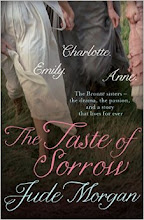And lo, the wind of Christmas blew in its annual drift of celebrity autobiographies. Obviously, Danny Dyer's was top of my list of must-reads, but it was Monsieur Fry's that ended up in my bag. And actually, I rather wish it hadn't been.
I love Stephen Fry as much as the next man, woman, child or endangered species does, but I found The Fry Chronicles cloying. It's not really, as it purports, about his time at Cambridge - this takes up a fairly miniscule amount of the book. The majority is concerned instead with, as Fry himself is at pains to stress in every other line, his enormous good fortune in finding highly paid work that he loved doing.
There is noticeably little about Hugh Laurie, for which there are many possible explanations: Fry didn't feel comfortable writing about him; Laurie didn't want anything but a few vague mentions; Laurie's American agents or lawyers didn't want anything but a few vague mentions; that's all to come in the next installment... I don't know, and, I realised as I read, that increasingly, I don't really care.
The problem I had with The Fry Chronicles is rather post-modern and is concerned with the set-up, which follows this pattern: Stephen tells us a story about how such-and-such a wonderful person (namedrop, namedrop) offered him a writing / acting / advertising job which paid an embarrasingly large sum of money with which he bought another house / car / computer, then proceeds to spend 4 pages whining about how none of this made him happy, and how he feels guilty that he still suffered from depression, and how he knows I, as his loyal reader, will HATE him whining about this, but how he still feels he must do it because that is his nature and after all, I'm reading the book because I am interested in his nature, aren't I?
Well, yes, Stephen, I suppose I am, but I am also interested in what that nature has to say about things outside of his own personal story. The parts where, for example, he uses Ben Elton's success as a springboard to give insightful commentary on the place of the arts in Thatcher's Britain, and suchlike, is far and away superior to whinging, self-indulgent moaning. His views on Rik Mayall, Alexei Sayle, class and alternative comedy are riveting and informative, particularly for one, like me, who was just old enough (in my early teens) to appreciate the rise of that scene. Now, that's not to say I wasn't expecting whinging, self-indulgent moaning, because of course I was, and I was expecting Stephen to apologise for it too, which he does at great length, but so much of it could have been edited out without taking away any of the sense. Stephen suffers from depression and feels guilty about it. We know this. He's told us before and he tells us again here. But once, twice is enough to get the measure of a man. Continuously telling us, and the measure begins to diminish.
I still love him, of course I do, and I still froth at the mouth for new QIs, but this book, unlike Moab is my Washpot, did not increase the fondness at all.
Monday 15 November 2010
Subscribe to:
Post Comments (Atom)


No comments:
Post a Comment